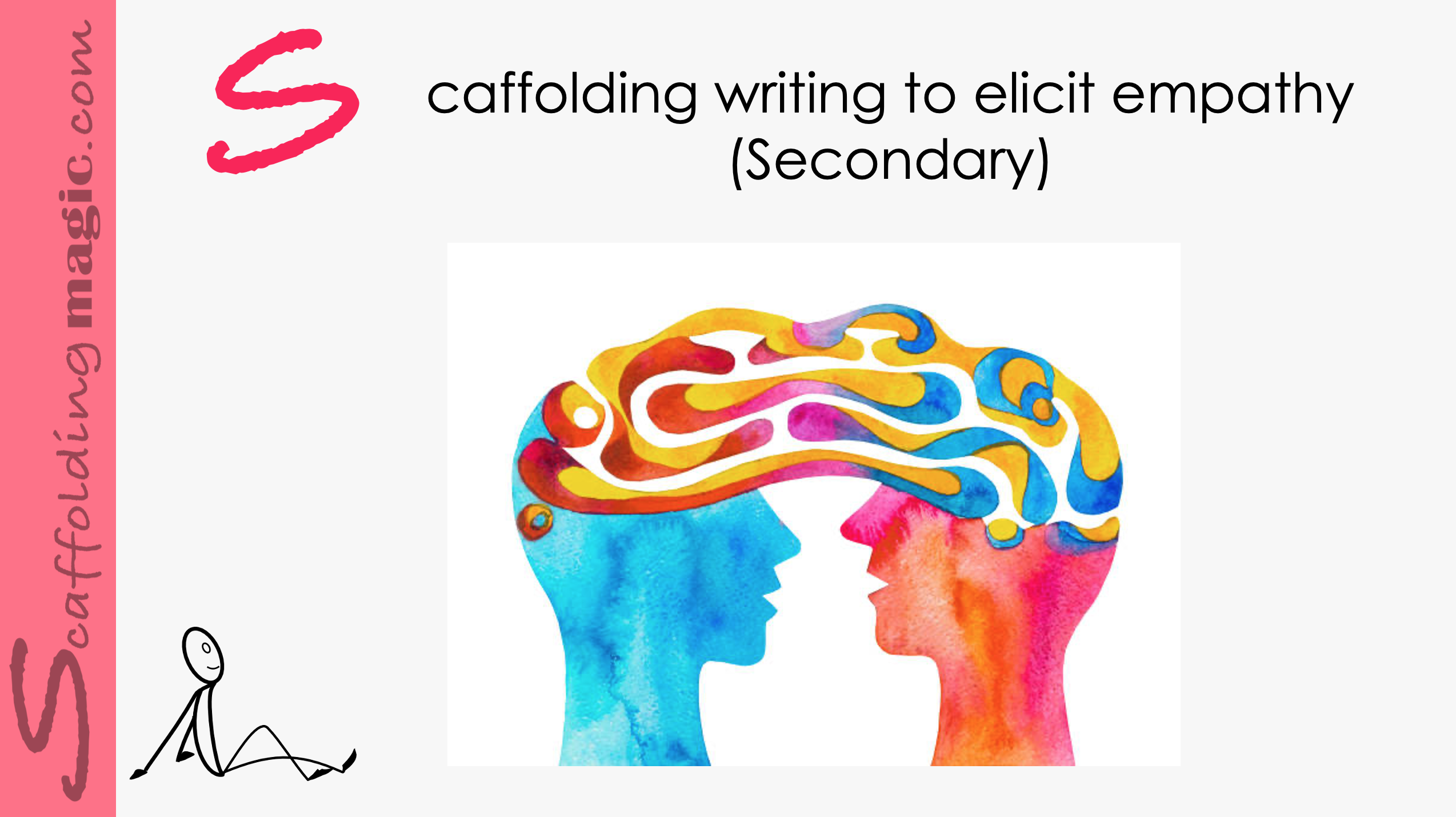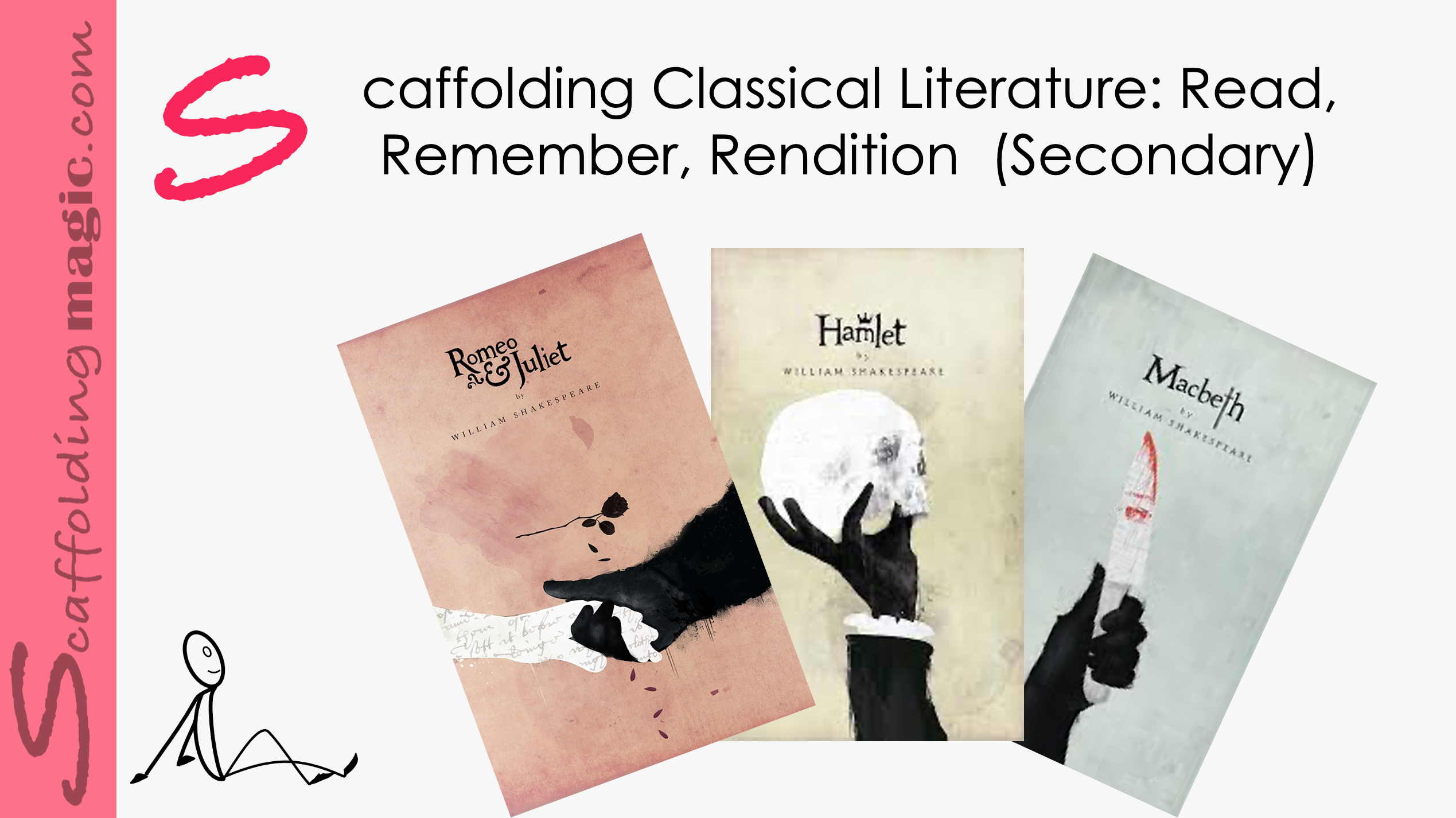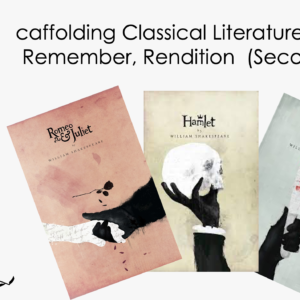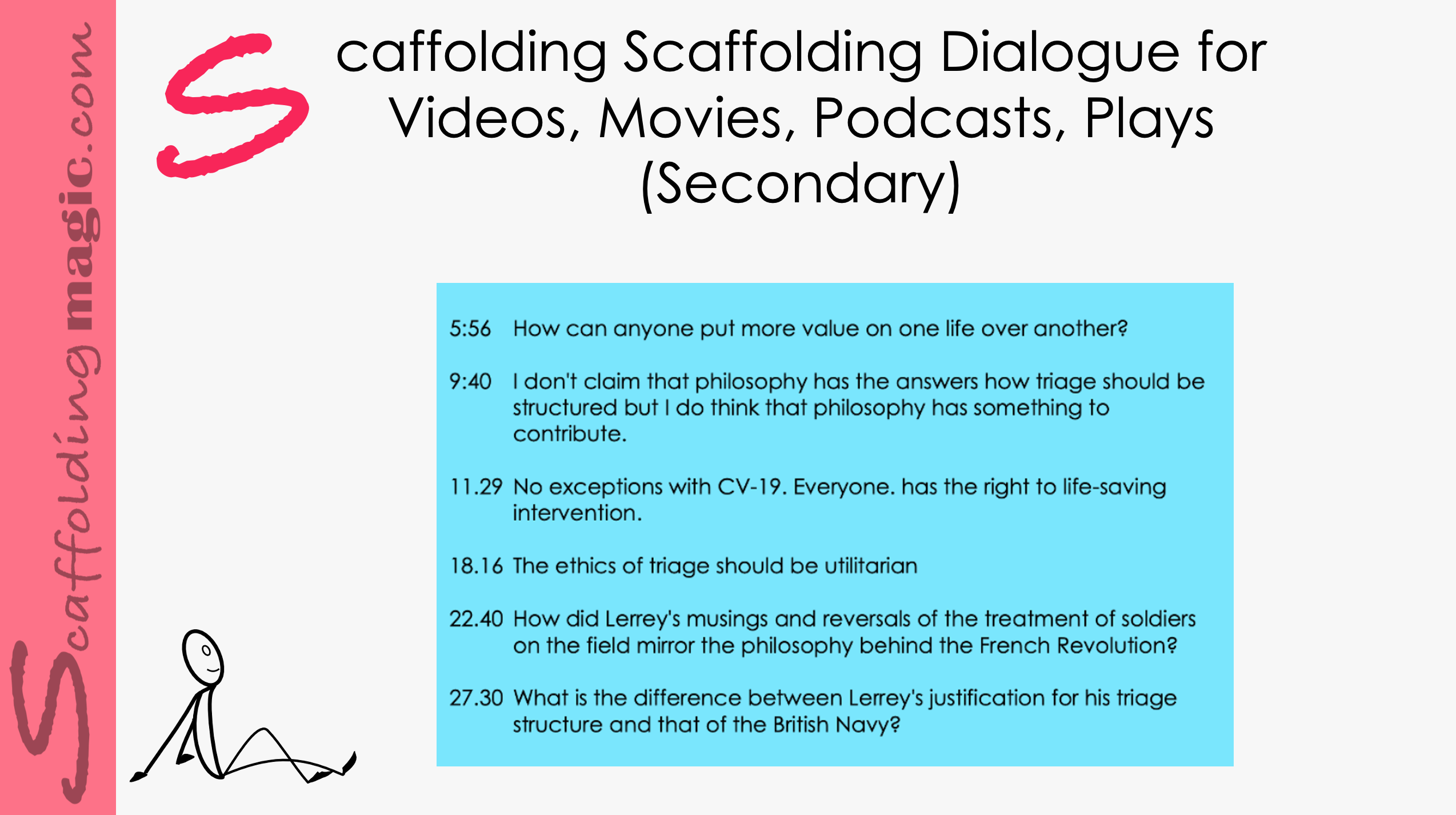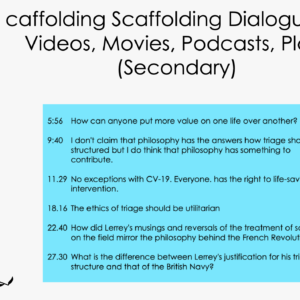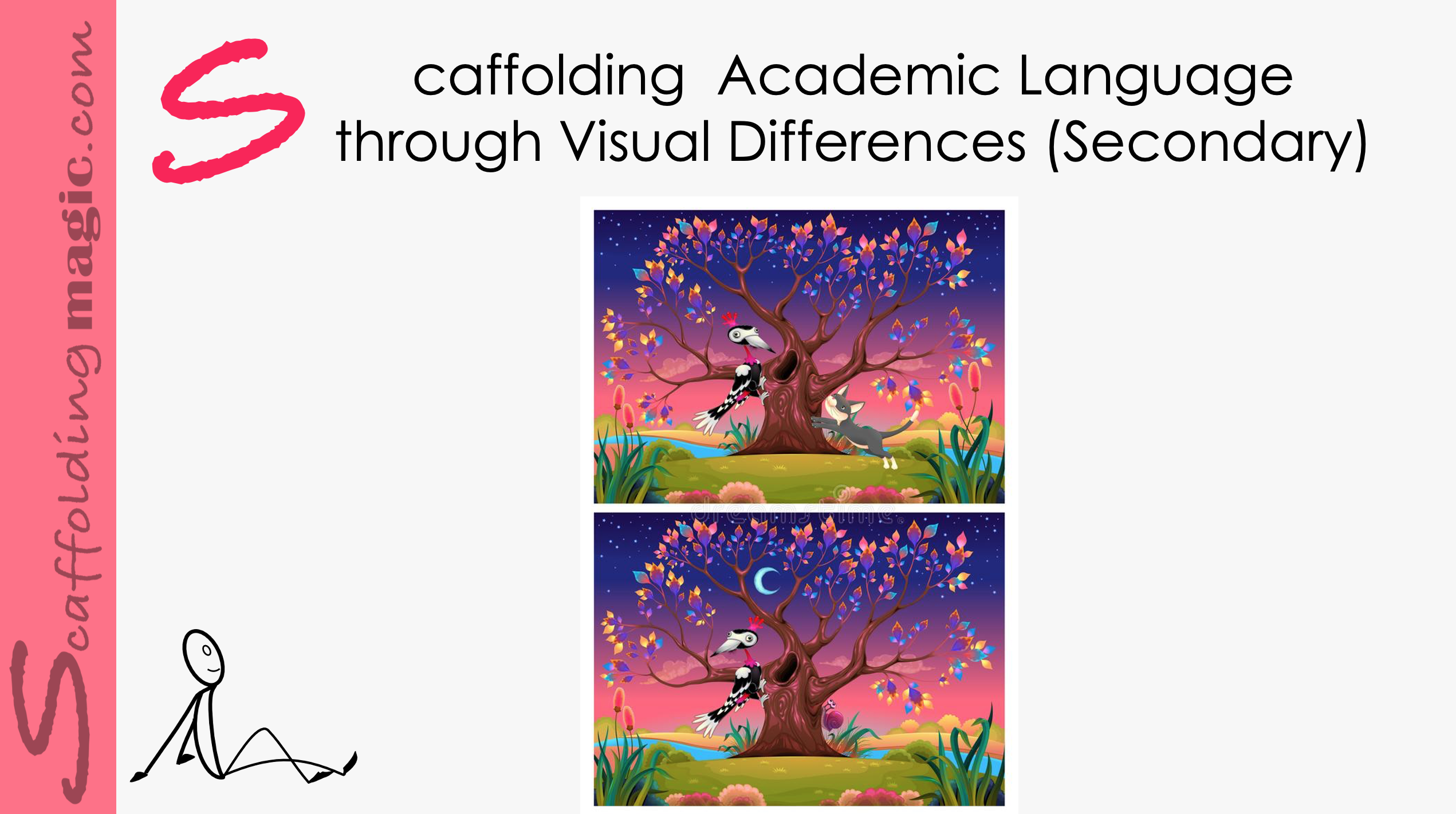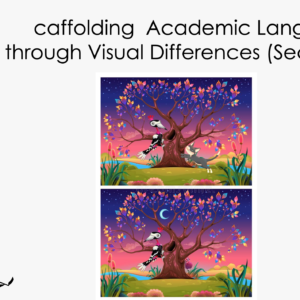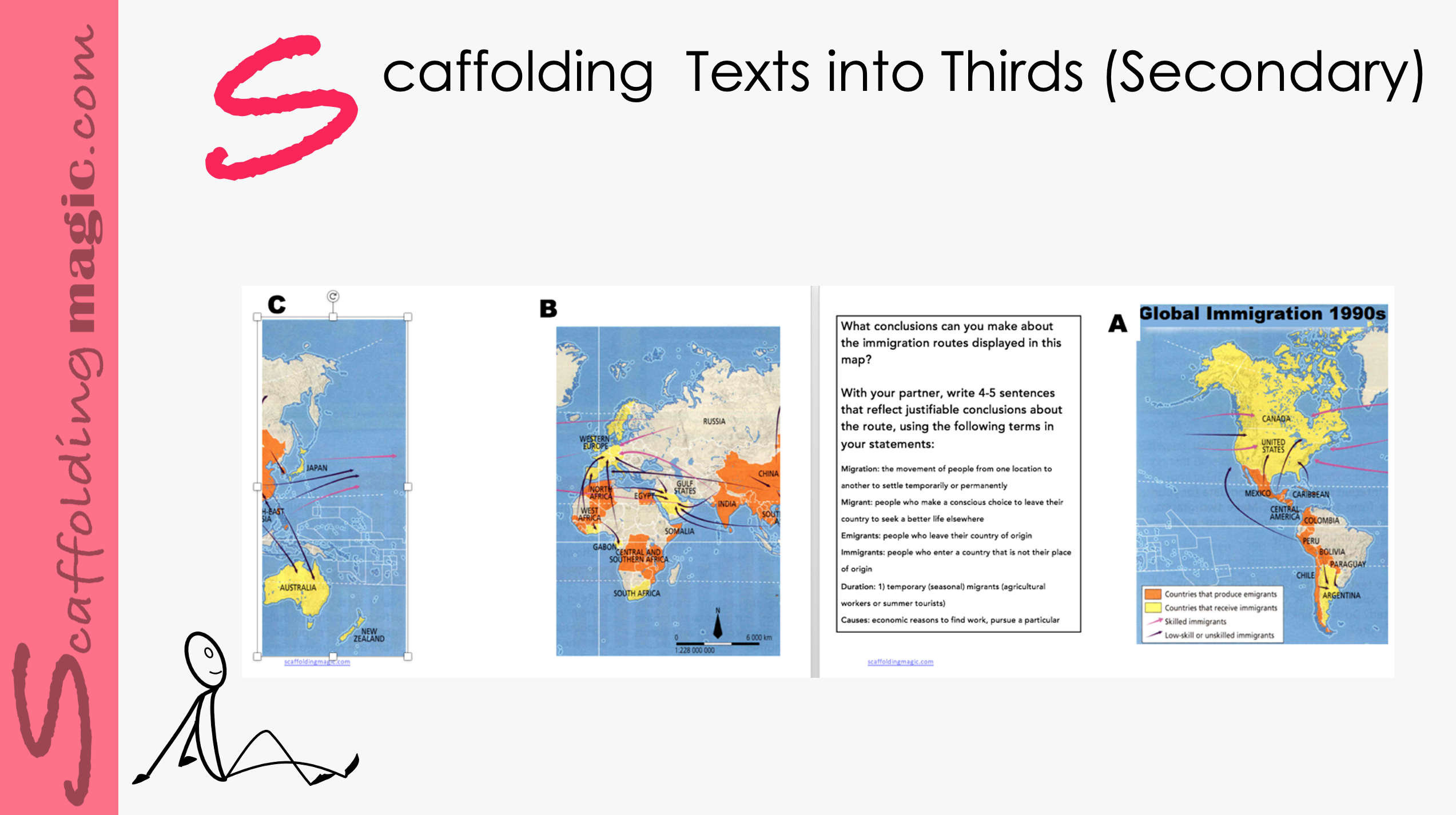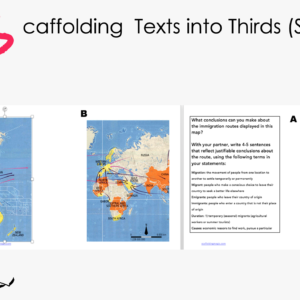Writing is one of the four cornerstone skills of every inclusive educational curriculum. It helps us form our thoughts into coherent verses and communicate over distance and time. It is a skill usually approached as a way of appeasing bands for standardised exams, but, in fact, is the perfect tool to foster the development and expression of empathy.
Scaffolding Writing to Elicit Empathy (Secondary)
$5.00
Writing is one of the four cornerstone skills of every inclusive educational curriculum. It helps us form our thoughts into coherent verses and communicate over distance and time. It is a skill usually approached as a way of appeasing bands for standardised exams, but, in fact, is the perfect tool to foster the development and expression of empathy.
Related products
-
Secondary ScaffoldsQuick View
Scaffolding Classical Literature: Read, Remember, Rendition
$5.00 Add to cartRated 0 out of 5 -
Secondary ScaffoldsQuick View
Scaffolding Dialogue for Videos, Movies, Podcasts, Plays (Secondary)
$5.00 Add to cartRated 0 out of 5 -
Secondary ScaffoldsQuick View
Scaffolding Academic Language by Identifying Visual Differences (Secondary)
$5.00 Add to cartRated 0 out of 5 - Quick View
Scaffolding Classical Literature: Read, Remember, Rendition
Through varied techniques, the reading of authentic classic literature is an incredibly enriching experience (although your students may not appreciate or admit this until years later!). Presented creatively, you may find that otherwise uninterested students will happily participate in activities that review/clarify details of the stories and so be able to interact with the literature more confidently.
This activity focuses on the purity of Shakespeare’s language. Let the students roll it around in their mouths and feel the strangeness and how satisfying it is when they can finally pronounce some of the dialogue.
Through varied techniques, the reading of authentic classic literature is an incredibly enriching experience (although your students may not appreciate or admit this until years later!). Presented creatively, you may find that otherwise uninterested students will happily participate in activities that review/clarify details of the stories and so be able to interact with the literature more confidently.
This activity focuses on the purity of Shakespeare’s language. Let the students roll it around in their mouths and feel the strangeness and how satisfying it is when they can finally pronounce some of the dialogue.
Scaffolding Dialogue for Videos, Movies, Podcasts, Plays (Secondary)
The ability to switch perspective is essential to learning in every domain. For those who follow Deepak Chopra and his deeply rooted scientific conclusions regarding the human condition, the more effort we make in seeing a situation through the perspective of someone we are offended by or disagree with, the more we heal on a cellular level – both emotionally and physically. Students are going to read chunks of dialogue taken from various tracks.
The ability to switch perspective is essential to learning in every domain. For those who follow Deepak Chopra and his deeply rooted scientific conclusions regarding the human condition, the more effort we make in seeing a situation through the perspective of someone we are offended by or disagree with, the more we heal on a cellular level – both emotionally and physically. Students are going to read chunks of dialogue taken from various tracks.
Scaffolding Academic Language by Identifying Visual Differences (Secondary)
Studies show that memorising academic language is ineffective in the long-term*. Students may be able to pass an exam they are studying for, but without having used the terms to analyse, compare, categorise, and defend their own ideas, most students will forget the meanings of the words as quickly as they learned them.
The solution is easy. We create opportunities for our students to use these words, terms and phrases while analysing, comparing, categorising, and defending their own ideas.
Studies show that memorising academic language is ineffective in the long-term*. Students may be able to pass an exam they are studying for, but without having used the terms to analyse, compare, categorise, and defend their own ideas, most students will forget the meanings of the words as quickly as they learned them.
The solution is easy. We create opportunities for our students to use these words, terms and phrases while analysing, comparing, categorising, and defending their own ideas.
Scaffolding Texts in Thirds (Secondary)
This scaffold presents one technique you can use to combat this human tendency of laziness – of relying on memory instead of working actively to further knowledge. We use here a social science lesson on global migration, and you’ll see how you can adapt it to any lesson you’re about to begin.
This scaffold presents one technique you can use to combat this human tendency of laziness – of relying on memory instead of working actively to further knowledge. We use here a social science lesson on global migration, and you’ll see how you can adapt it to any lesson you’re about to begin.
janice added this to see

